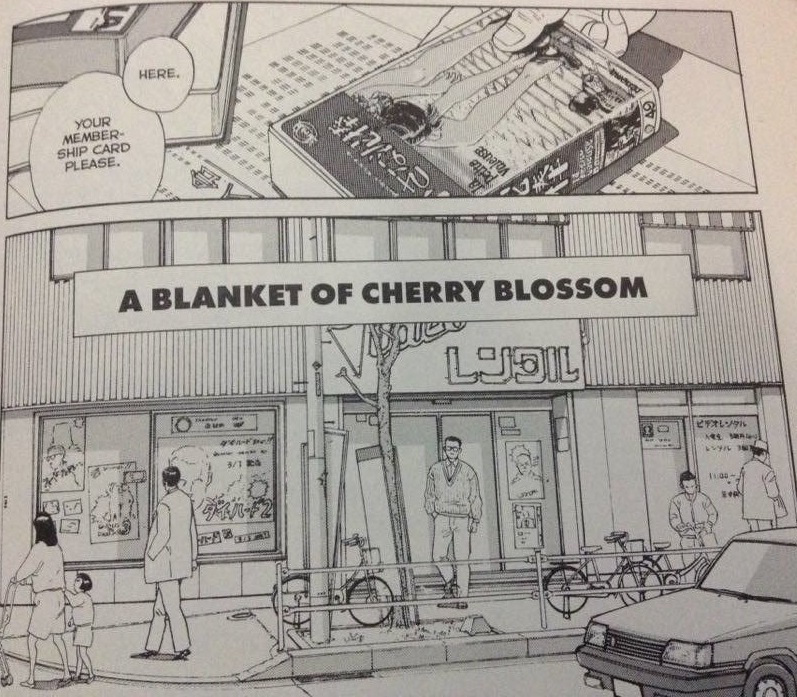The Night Stalker moves with ruthless efficiency. It’s a TV movie, so it’s got a mandated short runtime–seventy-four minutes; Richard Matheson’s teleplay has a brisk pace, something director Moxey embraces. There’s rarely a dull moment in The Night Stalker. It’s always about waiting for the next bad thing to happen.
The film opens with lead Darren McGavin alone, “narrating” from micro-cassette recorder playback while either transcribing or copyediting. He’s alone, a resigned look on his face, as he lays out the ground situation. McGavin’s a reporter in Las Vegas who used to be a big city newspaperman. His editor, Simon Oakland, can’t stand him and resents the paper’s (unseen) owner liking him. McGavin’s just been called back from vacation, though it’s almost impossible to imagine what he’s like when he’s not reporting. Matheson and Moxey are able to keep Night Stalker lean by not going too much into McGavin’s back story right off. It comes out later, in pieces, but the exposition is for McGavin’s story.
Someone is killing women, draining them of their blood through wounds on the neck. Every couple days, a new victim, all evidence pointing to someone who thinks he’s a vampire. The cops don’t want to hear it. Night Stalker’s pacing is a little weird because, even though the cops have all the same evidence as McGavin, their interpretation of it is left out. Like I said, it’s lean.
It also lets Night Stalker keep most of the cops are bad guys. Claude Akins’s strong-arming sheriff and Kent Smith’s slimey D.A. spend more time hounding McGavin than trying to solve their cases, going so far as to ignore coroner’s reports and common sense. Ralph Meeker’s the local FBI agent who likes McGavin and keeps him involved (though, actually, it’s McGavin who brings the story to Meeker initially).
McGavin’s got a lady friend, Carol Lynley, who works at a casino (just like all the victims). Night Stalker takes a while to establish the extent of their relationship; she gets introduced in the first act as one of McGavin’s sources. He’s got a handful, including Elisha Cook Jr. in a nice little cameo, but Lynley and Meeker are big ones. Eventually, Lynley gets to be the one who reveals some of McGavin’s back story. He’s been run out of every major city (and major city newspaper) because he’s just too intrepid for his own good. It provides some context, even if the film doesn’t exactly need it.
Because The Night Stalker has McGavin and it doesn’t need much else. Matheson doesn’t give McGavin a lot of speeches–he’s got a lot of dialogue, because he’s always doing his job–but he’s not a crusading journalist. He’s just trying to get the story (and a big enough one to get out of Las Vegas), but his ego’s always in check. The most impressive scenes, at least in terms of Moxey’s direction, are the action ones where McGavin is a bystander. He’s always active–dutifully taking pictures–while madness ensues around him.
There are two big action scenes in Night Stalker. Moxey leverages the film’s mundane realism against the fantastical action to outstanding result. When it’s a smaller action sequence, Moxey’s fine but it’s just a TV movie; the big action sequences, however, they’re beautifully choreographed madness. With McGavin taking it all in, not taking cover, but standing a step or two back from it all.
McGavin’s performance is phenomenal. Even when it is one of those duller moments–eventually McGavin takes to driving the Strip, waiting for the police scanner, waiting for the something in the story to break–and McGavin gives those filler moments weight. No small feat given Bob Cobert’s too jazzy for its own good music.
Technically, The Night Stalker can’t keep up with McGavin’s performance or Matheson’s writing. Michel Hugo’s photography is fine for the newspaper procedural and rather competent for the night exteriors, but he can’t make the finale work. Not the day-for-night, which he really should be able to accomplish, but then not the horror-suspense aspects either. The last deficiencies seem more like director Moxey’s problem–even when Night Stalker’s perfectly well-directed, it’s perfectly well-directed for a TV movie. Moxey’s ambitions are in check.
Akins and Smith are great foils. Oakland less so just because he’s not as much a part of it. He’s underwritten to make room. Meeker’s real good. Lynley’s solid, then gets better as the film progresses and she gets exposition responsibilities. The best performances in Night Stalker are the ones with a detached sadness. Matheson bakes the depressing reality of Las Vegas–so the location exteriors matter–into the film. Long hours, late nights, low pay, conditional happiness. It’s one hell of a downer.
McGavin is right at home in it, whether he wants to be there or not, whether anyone else wants him there or not. He wears a straw pork pie hat, a pinstrip suit, and an exhausted expression, but he’s full of energy. The Night Stalker succeeds thanks to the script and the competent filmmaking, but it excels because it’s McGavin in the lead. He’s so good. It’s like Matheson wrote the thing for McGavin’s cadence and his resigned exasperation.
 ★★★
★★★
CREDITS
Directed by John Llewellyn Moxey; teleplay by Richard Matheson, based on a story by Jeffrey Grant Rice; director of photography, Michel Hugo; edited by Desmond Marquette; music by Bob Cobert; produced by Dan Curtis; aired by the American Broadcasting Company.
Starring Darren McGavin (Carl Kolchak), Carol Lynley (Gail Foster), Simon Oakland (Vincenzo), Ralph Meeker (Bernie Jenks), Claude Akins (Sheriff Butcher), Charles McGraw (Chief Masterson), Kent Smith (D.A. Paine), Elisha Cook Jr. (Mickey Crawford), Stanley Adams (Fred Hurley), Larry Linville (Dr. Makurji), Jordan Rhodes (Dr. O’Brien), and Barry Atwater (Janos Skorzeny).
RELATED
- OTHER FILMS DIRECTED BY JOHN LLEWELLYN MOXEY
- OTHER 1972 RELEASES
- More






